SPECworkstation 3.0.2 Storage Benchmark
SPECworkstation benchmark is an excellent benchmark to test systems using workstation-type workloads. In this test, we only ran the Storage component, which is fifteen separate tests.
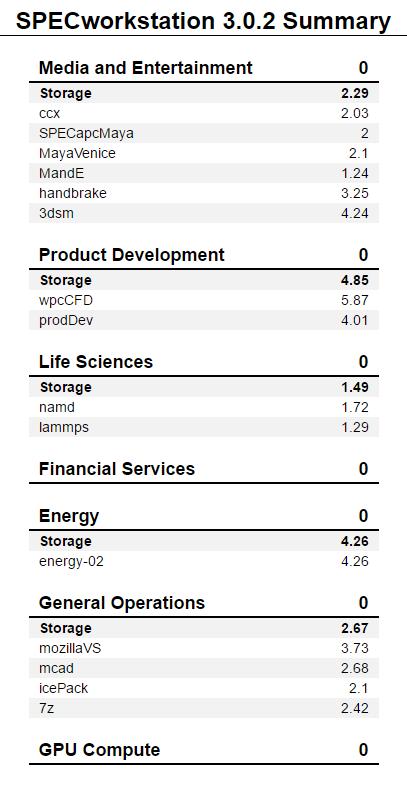
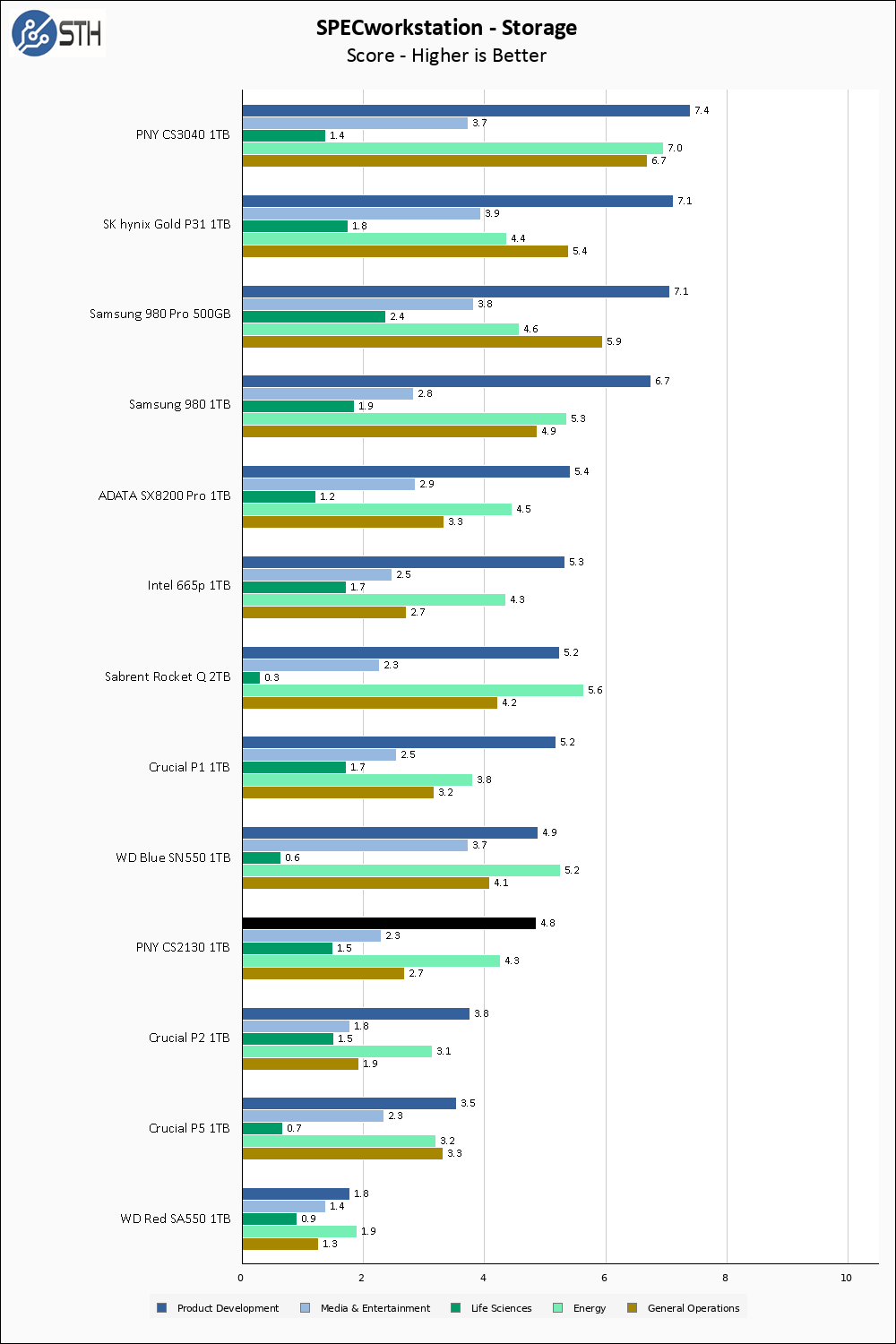
SPECworkstation performance for the PNY CS2130 1TB can be described as acceptable, though certainly not impressive. While a relatively good score for Product Development places the drive somewhat close to the middle of the pack, the other subtests are generally not as forgiving and would have the PNY drive placing a bit lower.
Sustained Write Performance
This is not necessarily a benchmark, so much as trying to catch the post-cache write speed of the drive. While I am filling the drive with data to the 85% mark with 10 simultaneous write threads, I monitor the drive for the write performance to dip to the lowest steady point and grab a screenshot.
This is a new section to my reviews, and something I plan to track from now on. Since I have not been gathering this data up until recently, I do not have historical data from my other reviews. Once I do I will start including comparison graphs.
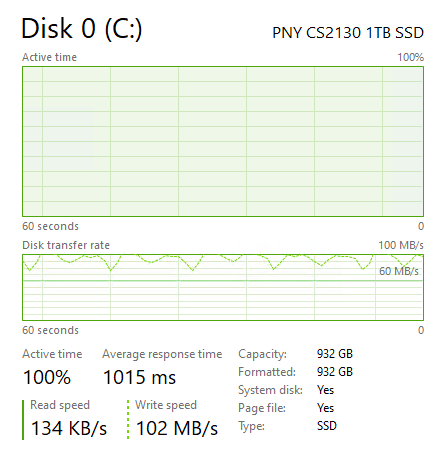
Coming in at a sustained post-cache write speed of around 100 MB/s, the PNY CS2130 1TB has a worst-case write performance lower than a modern mechanical 5400 RPM hard drive. Also, keep in mind, this measurement is taken when the drive is brand new or recently TRIMmed; performance could potentially be worse if the drive is overly full or TRIM has not been run recently.
Benchmark Comparisons
We are going to directly compare the PNY CS2130 1TB to two drives in our test set, the WD Blue SN550 1TB and the ADATA SX8200 Pro 1TB.
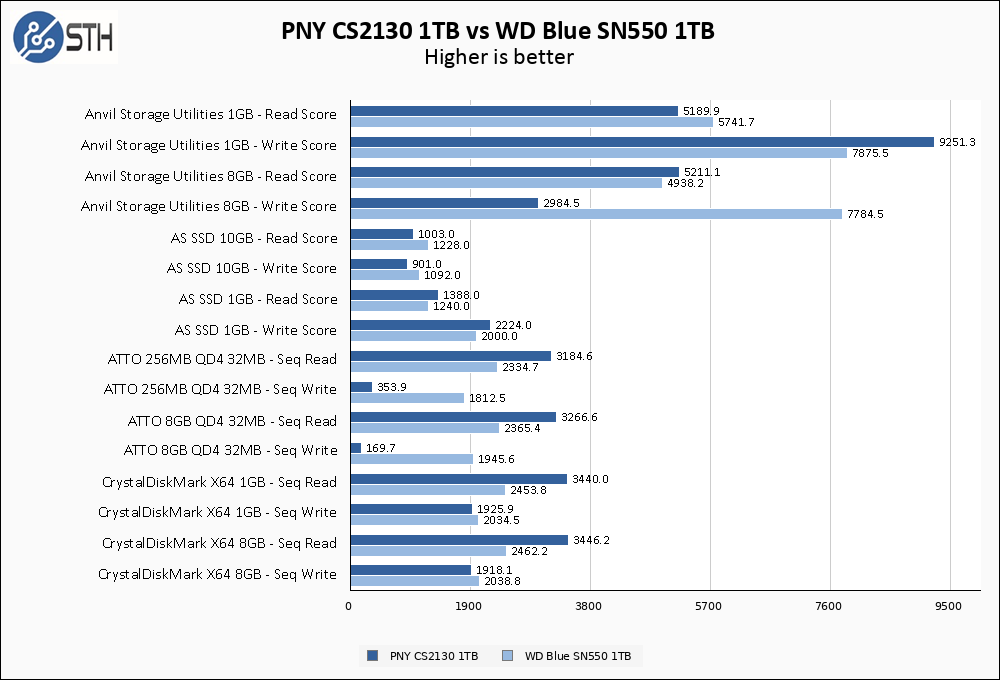
The WD Blue SN550 1TB has more conservative rated read speeds and very similar write rated write speeds, and that is mostly borne out in our comparison. In most of the read benchmarks, the PNY CS2130 1TB manages to keep an edge, while the WD Blue SN550 1TB tends to win in the write benchmarks.
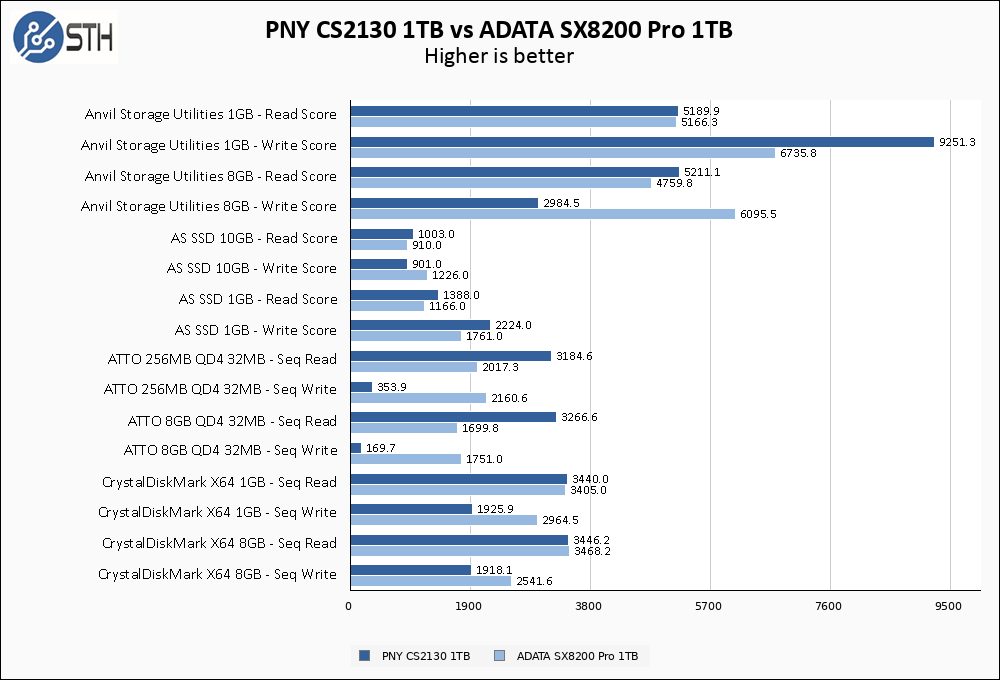
Compared to one of the older stalwarts of the mainstream sector the SX8200 Pro 1TB, the PNY CS2130 turns in mixed results. The SX8200 Pro manages to match the CS2130 in read benchmarks more often than the WD Blue drive, while it also wins more often than not on write benchmarks as well.
Temperatures
We monitored the idle and maximum temperature during testing with HWMonitor to get some idea of the thermal performance and requirements of the drive. Please keep in mind that our test bench is an open frame chassis in a 22C room, but with no direct airflow. As a result, this is not representative of a cramped low airflow case and is instead intended to model temperatures of a drive ‘on its own’.

Thermals on the PNY CS2130 1TB were very mild, peaking at a maximum of 62C.
Again, we are mostly looking for the absence of runaway thermals here during our testing rather than comparing drives to each other.
Final Words
The PNY CS2130 1TB is $110 on Amazon, which puts it in direct competition with the ADATA SX8200 Pro 1TB and the WD Blue SN550 1TB. In terms of performance compared to those drives the CS2130 is a mixed bag, but the write performance can be downright catastrophic as ATTO has shown.
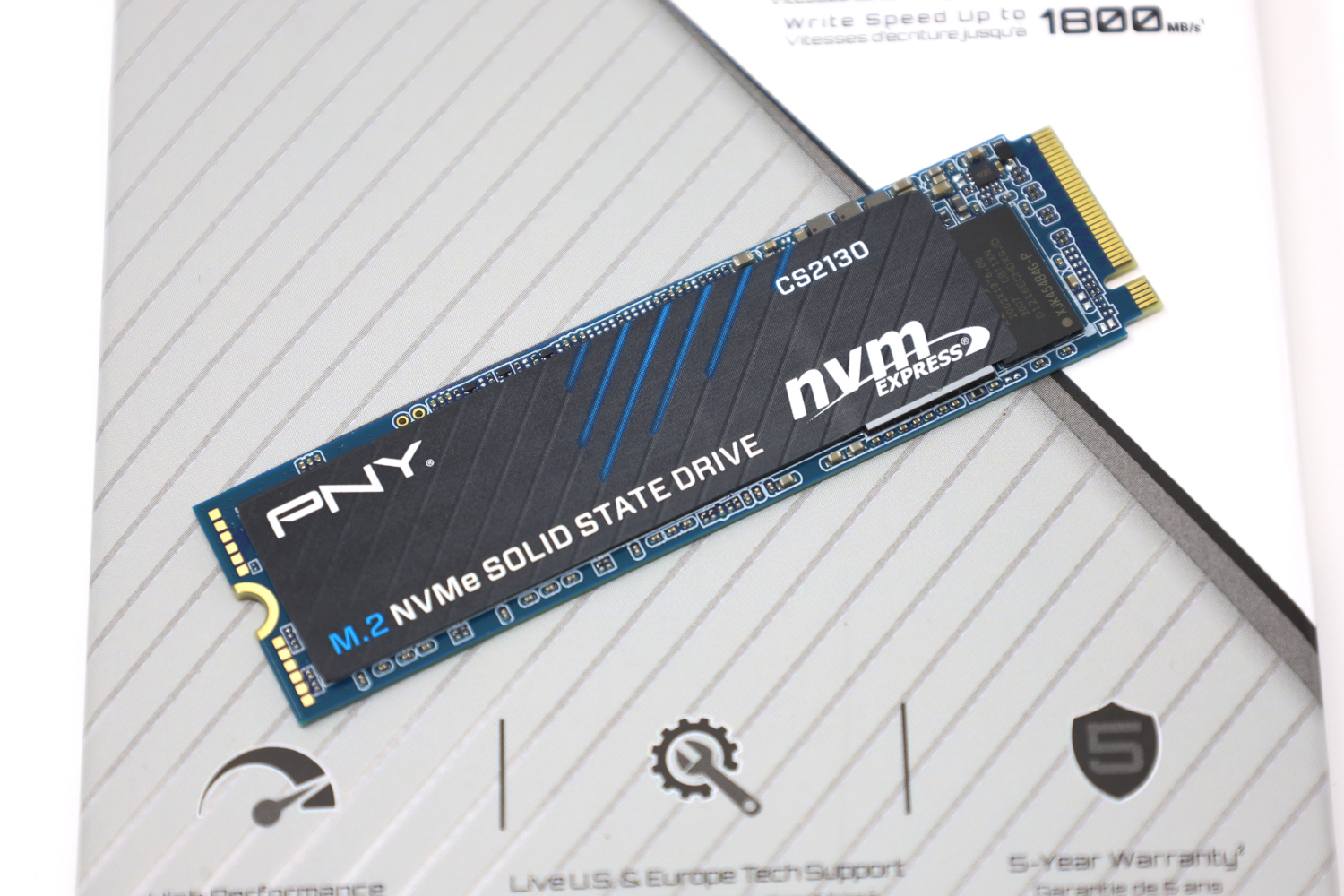
Also not going in the positive column for the PNY CS2130 is PNY’s lack of transparency on this drive. Not quoting endurance on a SSD is simply unacceptable, especially in a drive marketed with a 5-year warranty. Not disclosing the type of NAND is slightly more common in the industry, but is still something SSD buyers should be able to research.
Given the availability of price and performance competitors that put in better showings than the PNY CS2130 1TB, I cannot recommend the drive; there are simply better and more consistent drives available for the same amount of money. For read-heavy workloads, the drive is likely to be acceptable, but the poor write performance should be a red flag to many buyers since there are other drives available on the market.

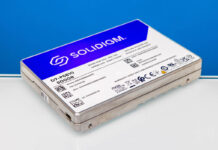
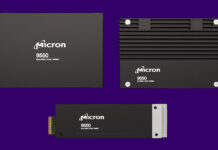
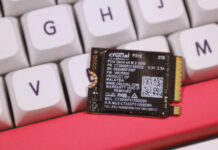
Hey Will, thanks for listening to my feedback and testing the post-pseudo-SLC-cache performance! The results of this (and other QLC drives) compared to the synthetic, low-volume benchmarks show why this is so important. Just abysmal compared even to low-tier TLC-NAND. Not to say it does not apply to most TLC NAND SSDs too, as they nearly all rely on pseudo-SLC cache now.
Cheers!
“SPECworstation benchmark”? I assume this drive is best for “worstations”.
We live in good times, for examples of bad components to be this rare.
The suspicious elements of my mind wonder if the occasional dud isn’t a sucker punch intended for grabbing the fattest margin possible from complacency?
well, to be fair to it, 100MB/s write post-cache is still way better than samsung 860 qvo which is 70-80mb/s. yet, the random write speeds are just unacceptable. if it wasn’t for that part, it would have been a good deal.
Thanks for the review.. was looking at the 2TB version due to its low price, for secondary/game storage that wouldn’t require too much write .. but dam these numbers are so bad i’ll be skipping that.
I’s simply effect of buffered writes. Between tests there is no time to flush buffers and then performance drops.
I have this 1TB drive in my PC as the system drive. Normally would not buy anything like this but because of the current GPU situation I had to buy a pre-built PC and this was in it. For general use it’s good, but when I am downloading a 50+ GB game on Steam via my 1Gbps internet connection, the drive just turns to poop. Constantly at 99% load, write speeds around the 100MB/s mark and the whole system gets unusable as Windows is not even able to load apps off of that drive. Currently considering upgrading the drive to a 970 EVO.
I found the TBW (Terrabytes written) warranty statement in an addendum to PNY’s SSD warranty PDF. The TBW warranty limits for the CS2130 are (drive capacity, warranty TBW): 500GB 110, 1TB 225, 2TB 450, 4TB 900, 8TB 1,810.
These numbers are in the “middling” TBW warranty numbers I’ve seen.
It’s too bad there hasn’t been a firmware update for these drives that fixes the abysmal write issues…. I know this because I checked using PNY’s “PCIe SSD Toolbox 2.0”.
I wish I had seen this review before I had bought the drive. Since I use it as my OS and program drive, and keep my downloads, documents, and media on an HGST 7200RPM datacenter drive and on my NAS, it still seems pretty zippy due to it’s decent read speeds.
I also keep the Windows pagefile on the HGST, as I don’t want to be doing constant writes to the Nvme SSD due to Window’s paging. By running my workstation with 64GB of Ram, the paging is kept to a minimum anyway….